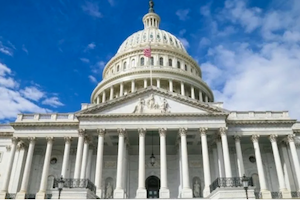U.S. House Passes Temporary Funding Bill to Keep Federal Government Running

The U.S. temporary funding bill, after undergoing multiple revisions and votes, sparked intense debates within Congress. Ultimately, the latest version of the bill was passed late at night on December 20 (local time) through bipartisan compromise, saving the U.S. government from a shutdown. This bill differs from the proposals by President Trump but temporarily provides funding for disaster relief and federal government operations.
The temporary funding bill will sustain federal government operations until early next year, giving Congress more time to resolve long-term budget disputes. The bill covers expenditures for core areas such as defense, healthcare, and infrastructure development but excludes additional funding requested by some lawmakers, including allocations for border security and supplemental budgets for social welfare programs.
The passage of this bill was the result of multiple rounds of negotiations between the two parties. Conservative Republican lawmakers expressed dissatisfaction with the scale of spending, calling for further cuts to curb the federal deficit. Meanwhile, Democrats insisted on maintaining essential funding for social welfare and infrastructure projects.
The Speaker of the House remarked that while the temporary bill is not a perfect solution, it prevents the severe economic and social impacts of a government shutdown. He also urged both parties to show greater cooperation in future budget discussions.
Following the passage of the bill, the White House welcomed the development, emphasizing that stable government operations are critical for the ongoing economic recovery and national security. The Treasury Secretary also warned that a government shutdown could undermine market confidence and further weaken the competitiveness of the U.S. economy globally.
On the other hand, some policy analysts argued that the temporary funding bill is merely a stopgap measure and fails to address the structural issues in U.S. budget management. They urged Congress to swiftly reach a comprehensive budget agreement to avoid facing similar crises in the future.
- 103 reads
Human Rights
Fostering a More Humane World: The 28th Eurasian Economic Summi

Conscience, Hope, and Action: Keys to Global Peace and Sustainability

Ringing FOWPAL’s Peace Bell for the World:Nobel Peace Prize Laureates’ Visions and Actions

Protecting the World’s Cultural Diversity for a Sustainable Future

Puppet Show I International Friendship Day 2020

